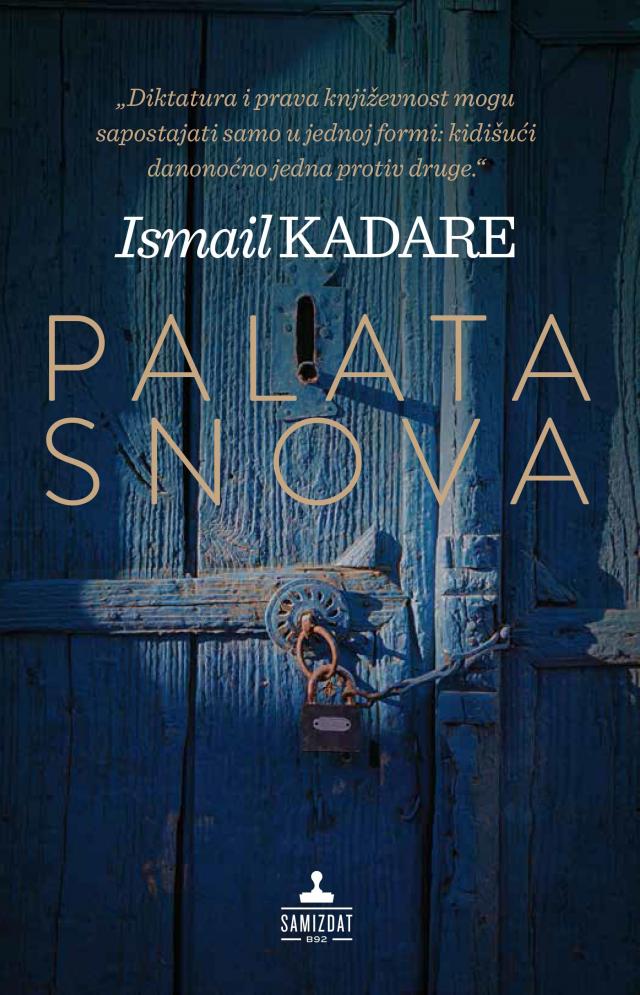Ismail Kadare's "The Palace of Dreams" published in Serbian
Albanian author Ismail Kadare's book "The Palace of Dreams" has been <a href="http://samizdatb92.rs/83a4154d-de08-4677-a953-d076f2ffb399/Palata-snova.aspx#.V7xFvqIYNoE" class="text-link" target= "_blank">published</a> in Serbian by Samizdat B92.
Wednesday, 24.08.2016.
11:15

Ismail Kadare's "The Palace of Dreams" published in Serbian
The main hero is Mark-Alem, who comes from an ancient Albanian family that produced several Turkish viziers."It was really amazing and wondrous that in the Stalinist Albania, where the whole culture was under ideological control while the canons of socialist realism ruled in literature, suddenly a writer with such a modern expression as Kadare imposed himself," writes Kosovo-based art critic and analyst Shkelzen Maliqi, and adds:
"A true masterpiece among his books is 'the Palace of Dreams', in which Kadare designs, in an enclosed system of oriental despotism embodied in the Ottoman Empire, a specific vision of hell as a totalitarian state where everything is under control, including human dreams. Kadare in one note himself refers to the infernal structure of the Palace of Dreams:
'I have long been attracted to designing a vision of hell. I knew it was difficult, if not impossible, to create something original after the great architects of hell so far, such as anonymous ancient Egyptians, Homer, St. Augustine, or Dante... The more I thought about it, the more I realized this was about a kind of a realm of death made up from our sleep and dreams, therefore of some aspects of the other-side part of our being that is parallel and lives along us, simultaneously... There was also the nightmares, the hand-wringing of conscience, the lost hope. But above all there was also the administrative grading, the sectors along which all dreams had to pass in order to be thoroughly examined and interpreted, which makes the building of the Palace of Dreams in some way seem close to the structure of Dante's hell'.
When the Palace of Dreams came out in 1981 it brought Kadare yet another, latest period of serious ordeals, a ban on publishing that lasted several years, as well as heightened fear from the secret police. However, that year probably also marked his definitive turning point and an internal rebellion."
Ever since his first novel readers and critics recognized Kadare's individual procedure of storytelling, thanks to which his motives and situations outgrow the local character. His work made him one of Europe's most important writers of the 20th century. Among the novels, "The Palace of Dreams" stands out - a political allegory located in the Ottoman Istanbul, by which Kadare subtly criticized the regime of Enver Hoxha. This book was banned in Albania immediately after it was published in 1981.
Kadare's works have been translated into 29 foreign languages. He has been a corresponding member of the Academy of Moral and Political Sciences in Paris since 1966, and has been awarded the prestigious European Prize for Literature and the French Legion of Honor.


























































Komentari 4
Pogledaj komentare